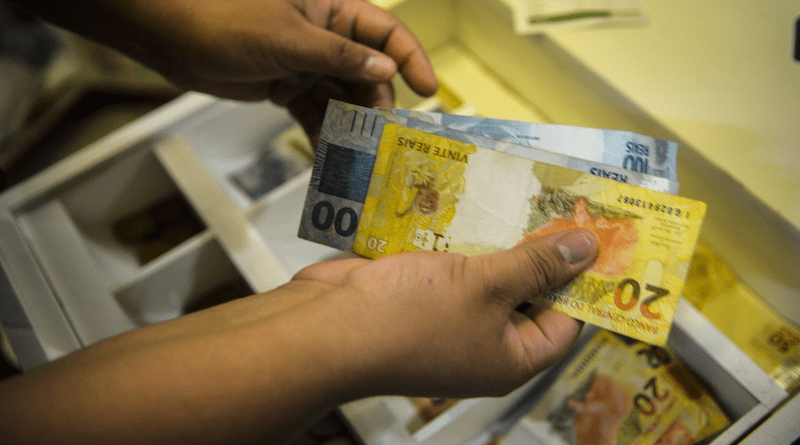Bruno de Freitas Moura

The behavior of food prices and monetary policy, which imposed high interest rates on the economy in 2023, helped keep inflation under control this year. Such is the assessment of experts heard by Agência Brasil Thursday (Dec. 28), when the country’s official inflation forecast for 2023 was released: 4.72 percent, the lowest in the last three years. The data come from statistics bureau IBGE.



Factors
In the view of economist Gilberto Braga, the figures show the success of the macroeconomic policy of the government and the Central Bank’s Monetary Policy Committee, which is tasked with setting the country’s benchmark interest rate, the Selic.
Throughout the year, the Selic was kept at high levels as a means of deterring the economy, consequently fighting inflation. The year began with a rate of 13.75 percent. After four consecutive cuts in the second half of the year, it will close out 2023 at 11.75 percent.
Braga pointed out there are price groups still putting pressure on the rates, “especially rents, which have been rising above the average inflation.” However, he went on to note, “food prices in general have been on the wane, which has offset the upward pressure in a positive way.”
The specialist expects the trend to continue next year. “In 2024, this price behavior should continue, with inflation tending to decline.”
However, he stressed there are risks coming from outside Brazil—“external pressure, above all due to Russia’s war conflicts with Ukraine and the Middle East, which influence oil prices, insurance, and the free flow of international trade,” he declared. “Despite these threats, the outlook for 2024 is quite positive,” he added.
Commodities
Researcher André Braz, from the Getulio Vargas Foundation, said that the prices of agricultural and mineral commodities helped keep inflation in 2023 lower than expected at the start of the year, when the market estimated it at 5.5 percent.
“On the agricultural side, soybeans, corn and wheat, which are raw materials for various other foods, saw sharp falls in producer prices.” Soy, for instance, fell by 21.92 percent. In the case of corn, the drop was even greater, 30.02 percent.
Estimates for 2024
Braz estimates that Brazil’s official inflation should close out 2024 at around four percent. However, he also sees challenging factors, such as the war between Russia and Ukraine and the Israeli offensive against Hamas. El Niño, the climatic phenomenon that changes the temperature of the waters of the Pacific Ocean and impacts crops in various regions of the planet, was also named by the expert as a cause for concern.
On the domestic front, Braz mentioned that public spending could affect inflation if doubts arise as to whether the government will meet its budget target. Finance Minister Fernando Haddad has said he is aiming for a zero deficit by 2024.
“If this target is threatened, there could be a devaluation of the exchange rate [against the dollar], and this leads to inflation, because we start importing things at a higher price,” he argued.
Interest rates
The economist believes that the Central Bank’s interest rate policy has fulfilled its role of curbing inflation in 2023, but he also remarked that the 11.75 percent Selic rate is still too high, which poses a challenge for the country’s growth and the generation of jobs and income. Even with the challenges mentioned, Braz thinks the inflation will follow a trajectory sufficiently controlled to allow for further reductions in the benchmark interest rate.
“I believe that the Central Bank will be able to continue cutting the rate even if these challenges are on the radar. The Selic will probably end next year at around nine percent, who knows,” he stated.
No comments:
Post a Comment